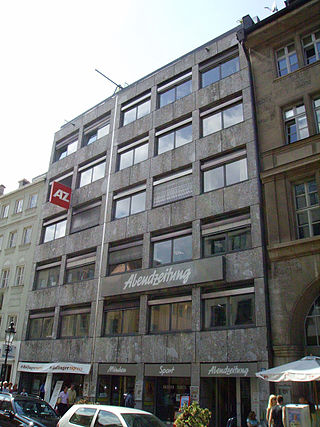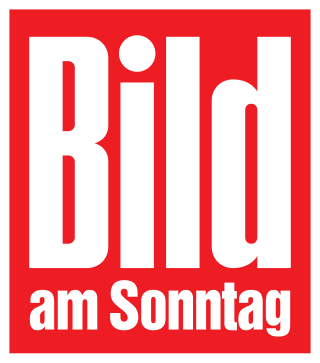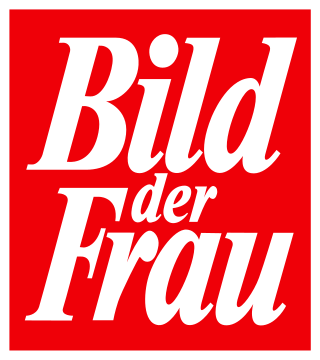
The Neue Zürcher Zeitung is a Swiss, German-language daily newspaper, published by NZZ Mediengruppe in Zürich. The paper was founded in 1780. It has a reputation as a high-quality newspaper, as the Swiss-German newspaper of record, and for detailed reports on international affairs.

Hörzu is a German weekly television listings magazine published in Hamburg.

Auto Bild is a leading German automobile magazine based in Hamburg, Germany.

Welt am Sonntag is a German Sunday newspaper published in Germany.

The Westdeutsche Allgemeine Zeitung (WAZ) is a commercial newspaper from Essen, Germany, published by Funke Mediengruppe.

Rheinische Post is a major German regional daily newspaper published since 1946 by the Rheinische Post Verlagsgesellschaft GmbH company, and headquartered in Düsseldorf. The Post is especially dominant in the western part of North Rhine-Westphalia. The Post's online platforms are called RP ONLINE and Tonight.de.

The Goldene Kamera is an annual German film and television award, awarded by the Funke Mediengruppe. The award show was usually held in early February in Hamburg, but also took place in Berlin on occasion. It has been paused since 2019, after dropping the traditional award categories some time earlier.

Gruner + Jahr GmbH is a publishing house headquartered in Hamburg, Germany. The company was founded in 1965 by Richard Gruner, John Jahr, and Gerd Bucerius. From 1969 to 1973, Bertelsmann acquired a majority share in the company and gradually increased it over time. After 2014, the company was a fully owned subsidiary of the Gütersloh-based media and services group. Under the leadership and innovation strategy of Julia Jäkel, Gruner + Jahr evolved into a publishing house producing cross-channel media products for the digital society.

Berliner Morgenpost is a German newspaper, based and mainly read in Berlin, where it is one of the most read daily newspapers.

The Abendzeitunglit. 'Evening Paper'), sometimes abbreviated to AZ, is a morning tabloid newspaper from Munich, Germany. A localized edition is published in Nuremberg. The paper is published six days a week; the masthead of the Saturday edition is held in light blue. Rivals on the Munich tabloid market are tz and a localized edition of the national mass circulation phenomenon Bild-Zeitung.

Funke Mediengruppe (formerly WAZ-Mediengruppe) is Germany's third-largest newspaper and magazine publisher with a total of over 500 publications in eight countries. WAZ-Mediengruppe is privately held by the Funke family and is headquartered in Essen, North Rhine-Westphalia.

The Hamburger Morgenpost is a daily German newspaper published in Hamburg in tabloid format.

The Leipziger Volkszeitung or LVZ is a daily regional newspaper in Leipzig and western Saxony, Germany. First published on 1 October 1894, the LVZ was formerly an important publication of the workers' movement and is currently the only local newspaper in Leipzig.

Bild am Sonntag (BamS) is the largest-selling German national Sunday newspaper published in Berlin, Germany.
Reggel was a daily newspaper published in Budapest, Hungary, between October 2004 and December 2005.
Lausitzer Rundschau is a daily regional newspaper published in Cottbus, Brandenburg, Germany. It has been in circulation since 1946.

Bild der Frau is a weekly women's magazine published in Hamburg, Germany, that has been in circulation since 1983.

Funk Uhr is a German-language weekly television magazine published in Hamburg, Germany. Founded in 1952 it is one of the oldest magazines in the country.
Franzisca Hauke is a German field hockey player. She represented her country at the 2016 Summer Olympics and the 2020 Summer Olympics. Her brother, Tobias Hauke plays also field hockey for the German national team.
Berliner Woche is a weekly advertising magazine in Berlin. The magazine, financed by advertising revenues, is published every Wednesday in 32 different local editions for the districts of Berlin. The total circulation is over one and a half million copies. Two local editions are published under the traditional title Spandauer Volksblatt.
















